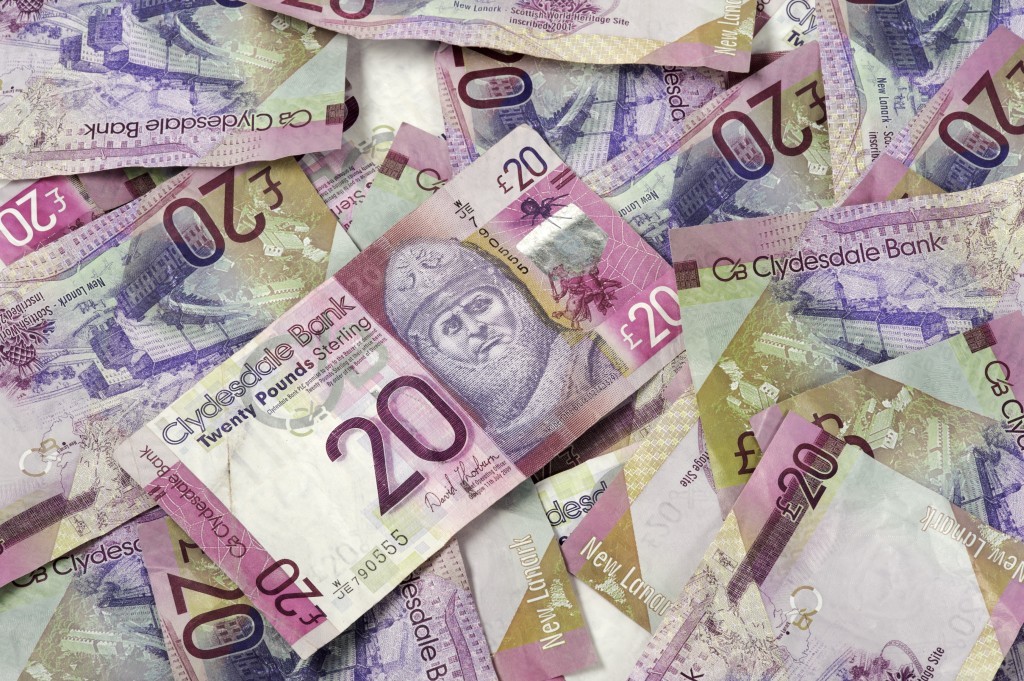
Sterling plunged to a fresh 31-year low as the Bank of England said it would boost lending by up to £150 billion to help ease the economic pressure caused by the Brexit vote.
The pound dropped below 1.31 US dollars for the first time since 1985 and sunk to its weakest level against the euro since 2013 at 1.17 euros, as governor Mark Carney offered his assurances that the Bank’s measures were working.
The FTSE 100 Index was back in positive territory, lifting 23.1 points to 6,545.4 following Mr Carney’s comments, but struggled to make significant headway amid a slump from housebuilding stocks.
Barratt Developments was the biggest faller, down 9% or 38p to 350.3p, as Brexit uncertainty continued to loom large over the property sector.
The sharp sell-off came as Aviva saw its share price fall 3.7%, or 14.6p to 376.4p, after it suspended trading in its £1.8 billion property fund as investors scramble to pull their money out of UK commercial property holdings following the Brexit vote.
Asset manager M&G Investments also moved to temporarily suspend trading in its M&G Property Portfolio and feeder fund.
The two suspensions follow on from Standard Life Investments, which made the same move on Monday, halting dealing in its £2.7 billion UK Real Estate fund.
Laith Khalaf, senior analyst at Hargreaves Lansdown, said the “dominoes are starting to fall” in the UK commercial property market.
He added: “It’s probably only a matter of time before we see other funds follow suit. The problem these funds face is that it takes time to sell commercial property to meet withdrawals, and
the cash buffers built up by the managers have been eroded by investors heading for the door, both in the run-up to the EU referendum, and in the aftermath.”
Across Europe, Germany’s Dax and the Cac 40 in France were both down 1.8% after gloomy economic data showed business activity in the eurozone slowed to a 17-month low in June.
The price of oil tumbled below the 50 US dollars a barrel mark, falling more than 4% to 47.94 US dollars, as concerns over the UK economy intensified following Britain’s vote to exit the EU
It came as the latest update from UK’s powerhouse services sector showed activity fell last month on the run up to Britain’s referendum on the EU.
The closely-watched Markit/CIPS services purchasing managers’ index (PMI) recorded a worse-than-expected 52.3 in June, down from 53.5 in May and below economist expectations of 52.8.
Business activity in the services sector matched a 38-month low last seen in April, as mounting uncertainty surrounding the EU referendum “weighed on workloads and incoming new business”.
Chris Williamson, chief economist at Markit, said it was the latest in a string of economic surveys for June which pointed to a slowdown in the UK economy for the second quarter.
In stocks, housebuilder Persimmon remained on the back foot despite moving to soothe fears over a Brexit hit as it posted robust home sales and assured there would still be “good opportunities” in Britain’s property market.
The Charles Church builder said that, while it was “too soon to judge” the impact of last month’s vote to leave the EU, it believes the “market fundamentals remain strong”.
York-based Persimmon – the UK’s biggest housebuilder by volume – said it sold 6% more homes in the first six months of 2016, at 7,238, with the average price up 6% at around £205,500.
Shares were down 7% or 103p to 1332p, while Taylor Wimpey also took a tumble, down 9.2p to 121.3p.
Meanwhile, British American Tobacco raced ahead, up 2.6% or 130.5p to 5035p, after it was boosted by a price target upgrade from US investment bank Goldman Sachs.
The biggest risers on the FTSE 100 Index were Royal Dutch Shell B up 61p to 2126.5p, Galxosmithkline up 44p to 1645p, British American Tobacco up 130.5p to 5035p, Royal Dutch Shell A up 52.5p to 2103.5p.
The biggest fallers were Barratt Developments down 38p to 350.3p, Dixons Carphone down 23.3p to 286.7p, Persimmon down 103p to 1332p, Legal & General down 13.3p to 173.7p.